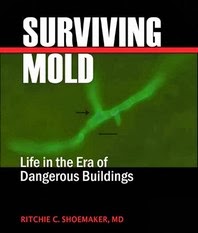My test results are incomplete. :( One, they take weeks to come in, and two, the doctor I'm no longer with actually canceled my tests before they were finished so only partial results came in. What does this mean? Well, when my chronic illness brain fog self gets it in gear and gets an appointment with the new doctor, he'll have to redo most of these tests and I'll have to pay out the nose for them I'm sure as he uses a specific lab. This could be more weeks of waiting, waiting, waiting...
Definition: VEGF is a signal protein
produced by cells that stimulates vasculogenesis and angiogenesis. It is part of
the system that restores the oxygen supply to tissues when blood circulation is
inadequate. It's normal function creates new blood vessels during embryonic development, after injury, in muscles following exercise, and to create new vessels to bypass blocked vessels.
Low VEGF causes muscle pain, fatigue and shortness of breath. (I suffer from all of these off and on.)
Dr. Shoemaker, the expert in mold illness, states that a low VEGF inidicates inadequate oxygen delivery in the capillary beds. In other words, there is a reduction of blood flow in the small blood vessels (called capillaries) throughout my body. Having low VEGF like I do is one of the most common abnormalities he sees in chronic inflammatory response syndrome (CIRS) caused by exposure to water-damaged buildings.
This capillary hypoperfusion means that there is reduced blood flow in the smallest, most abundant blood vessels (and the tissues in the body they serve), which means a lack of normal oxygen delivery. Restore normal perfusion and then watch as the devestating fatigue and all of its associated symptoms fade away.
Normal blood flow in the tiniest of blood vessels is essential. It is important to understand how our cells burn sugar. The abnormal, inadequate delivery of oxygen leads to wasteful burning of limited cellular resources, including make-up energy sources like fat and protein - especially protein. If there isn't enough oxygen in the cell, it only gets about 5% of the total available energy from sugar that it should while the other 95% is wasted with rising lactic acid which is a good measure of how little oxygen is being delivered.
My good days and bad days...remember those?
Well, I'll have a good day and get stuff done and then I'll have to rest for about 2 days to make up for the "good" day that I had energy and overdid it. What constitute overdoing it? Normal activities you do every day - showering, taking care of kids, cleaning around house, driving to places, working on a project, shopping, running errands, little things or big things with the big things draining me more for sure. Well, when I burn up the small supply of glycogen I have, that's why I need two days to rest - my body is replenishing the glycogen used up.
Bad advice: "Exercise more, Eat less"
For chronically ill patients like me, this is bad advice. The more physical activity I do the more I hurt and the harder my body has to work to deliver oxygen to my starved tissues. Eating less - well, I'm on a Gluten-free, Dairy-free, Egg-free, low-sugar diet as it is. But my body needs more protein in order to have more back up for the sugar I deplete with just a few hours of an activity.
There's so much more to learn and so much more testing to be done. I hope we have a treatment protocol soon. I'm growing impatient, admittedly, but
more than ever I really need these answers.
(Parts of this post are adapted from Dr. Shoemaker's book, Surviving Mold downloaded to my iPhone on iBooks.)


.jpg)







